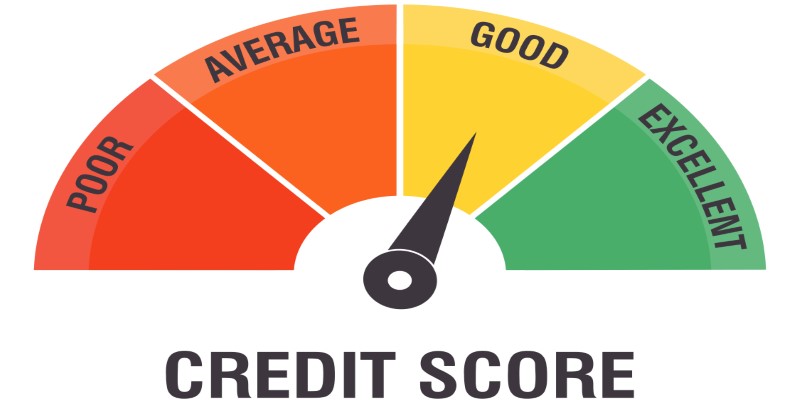Having a good credit score is crucial for many aspects of your financial life, from getting approved for loans to securing better interest rates. But what if you're carrying student loan debt? Don't worry; you can still improve your credit score. Let's explore practical strategies to help you manage your student loan debt while boosting your credit score.

Understand Your Credit Score
Before diving into specific strategies, it's essential to understand how your credit score is calculated. Your credit score is based on various factors, including your payment history, length of credit history, amounts owed, new credit, and types of credit used. Knowing these factors will help you make informed decisions about managing your finances.
8 Key Tips for Boosting Your Credit Score
By implementing these tips, you can take proactive steps to improve your financial health and achieve your long-term goals. Let's delve into practical ways to manage your credit effectively and enhance your financial well-being.
Evaluate Debt-to-Income Ratio
Your DTI compares your monthly debt payments to your gross monthly income and is a key factor lenders consider when evaluating your creditworthiness.
To calculate your DTI, add all your monthly debt payments, including student loans, credit cards, auto loans, and mortgages, and divide that total by your gross monthly income. Aim to keep your DTI below 36%, although lower is generally better.
By keeping your DTI in check, you demonstrate to lenders that you can responsibly manage your debt obligations relative to your income. This can positively impact your credit score and increase your chances of qualifying for new credit or loans.
Understanding and actively managing your DTI alongside other credit score factors will empower you to make informed financial decisions and work towards achieving your long-term financial goals.
Make Timely Payments
One of the most significant factors affecting your credit score is your payment history. Paying your bills on time, including your student loan payments, can positively impact your credit score. Set up automatic payments or reminders to ensure you never miss a due date.
Manage Your Debt Wisely
While it may seem counterintuitive, having some debt can benefit your credit score. However, it's essential to manage your debt responsibly. Aim to keep your credit card balances low and avoid maxing out your credit limits. Consider consolidating or refinancing your student loans to lower your interest rates and simplify your payments.

Diversify Your Credit
A mix of different types of credit accounts, such as credit cards, student loans, and auto loans, can positively impact your credit score. If you don't already have a diverse credit portfolio, consider responsibly opening new accounts over time. However, be cautious not to open too many accounts too quickly, as this can hurt your credit score.
Monitor Your Credit Report
Regularly monitoring your credit report is essential for identifying any fraudulent activity or errors that could affect your credit score. Every year, you're entitled to one free credit report from each of the three major credit bureausEquifax, Experian, and TransUnion. Take advantage of this opportunity to review your report and dispute any inaccuracies.
Limit Credit Inquiries
A hard inquiry is placed on your credit report whenever you apply for new credit, whether a credit card, loan, or mortgage. Too many inquiries within a short period can lower your credit score. Be strategic about when and why you apply for new credit and avoid unnecessary inquiries.
Utilize Credit Utilization
Credit utilization refers to the %age of your available credit that you're currently using. Keeping this ratio lowideally below 30%can positively impact your credit score. If you carry high balances on your credit cards, focus on paying them down to lower your credit utilization ratio.
Stay Patient and Persistent
Improving your credit score takes time and persistence, especially when dealing with student loan debt. Stay committed to practicing good financial habits, such as making timely payments and managing your debt wisely. Over time, you'll see gradual improvements in your credit score.
Consider Debt Repayment Strategies
Dealing with student loan debt can feel overwhelming, but there are various repayment strategies you can explore to ease the burden and improve your credit score simultaneously.

Income-Driven Repayment Plans: If you're struggling to make monthly student loan payments, consider enrolling in an income-driven repayment plan. These plans adjust your monthly payments based on income, making them more manageable.
Loan Forgiveness Programs: Explore options for loan forgiveness programs, especially if you work in public service or certain nonprofit sectors. After making several qualifying payments, these programs may forgive a portion or all of your remaining student loan balance.
Accelerated Payment Strategies: If you can, consider accelerating your student loan payments to pay off the debt more quickly. By paying extra towards your loans each month or making larger lump-sum payments when possible, you can reduce the total interest you'll pay over time.
Debt Snowball or Avalanche Method: These debt repayment strategies prioritize the smallest or highest interest rate debts first while making minimum payments on the rest. Once you pay off one debt, you can apply that payment amount to the next debt, accelerating your progress.
Seek Professional Guidance: If you're unsure which repayment strategy is best for your situation, consider seeking advice from a financial advisor or credit counselor. They can help you evaluate your options and create a customized plan to effectively manage your student loan debt while improving your credit score.
Conclusion
With the right strategies, managing student loan debt while improving your credit score is feasible. You can take control of your financial future by understanding how your credit score is calculated and implementing practical tips like making timely payments, managing your debt wisely, and monitoring your credit report. Patience and persistence are key, so stay focused on your goals and take proactive steps to achieve them.




